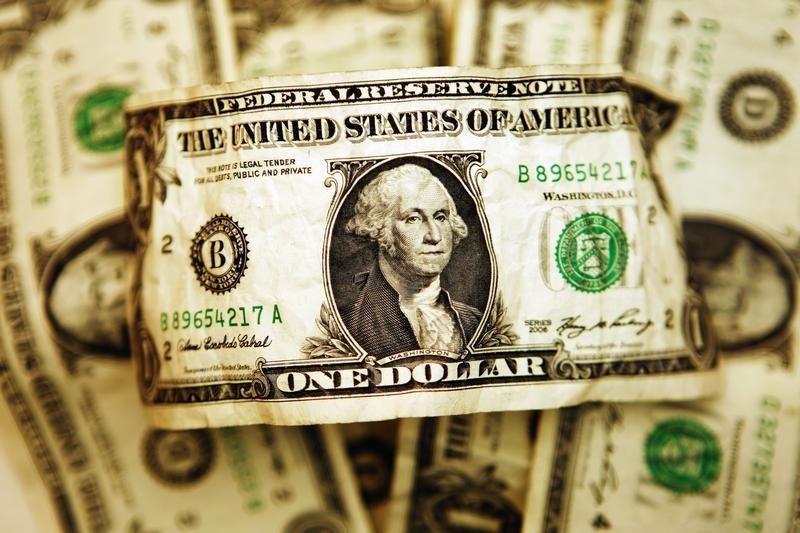By Ambar Warrick
Investing.com -- The dollar tumbled to a near seven-week low on Wednesday after the Federal Reserve hiked interest rates as expected, although some language in the central bank’s announcement suggested that interest rates may be close to reaching their peak.
The dollar index fell about 0.7% against a basket of currencies to 102.185 points - its weakest level since early-February.
The Fed hiked rates by 25 basis points to 4.75%-5%, within market expectations. But a change in the bank’s language signaled a potential policy shift, which could see the bank hit its terminal rate sooner than expected.
The central bank said that it will raise rates by at least 25 bps more this year. But it also said that “some additional policy firming may be appropriate,” a shift from its previous language of “ongoing increases in the target range will be appropriate” - a statement it has mentioned in every policy meeting since March 2022, when it had embarked on its latest hiking spree.
The central bank kept its benchmark rate forecast unchanged from December and forecast a peak rate of 5.1% in 2023, and said it was not considering any rate cuts this year.
The Fed hiked rates by a cumulative 500 bps over the past year - its most aggressive tightening spree in 40 years, as it moved to curb rising inflation.
But the recent collapse of several regional U.S. banks raised concerns over damage to the economy from rising interest rates. While the bank had swiftly intervened to prevent a larger crisis and restore faith in the banking system, the event spurred increased bets that the Fed had limited economic headroom to stay hawkish this year.
“This has been the most aggressive monetary policy tightening cycle for 40 years and by going harder and faster into restrictive territory you naturally have less control over the outcome,” analysts at ING wrote in a note.
Still, Chairman Jerome Powell said on Wednesday that the banking system is “sound and resilient,” and downplayed fears of a bigger crisis. He also reiterated that the fight against inflation was set to continue, given that price pressures remained stubborn in recent months.
But markets are still pricing in an at least 25 bps to 50 bps rate cut this year, while ING forecast increased headwinds for the economy from a more restrictive stance.
